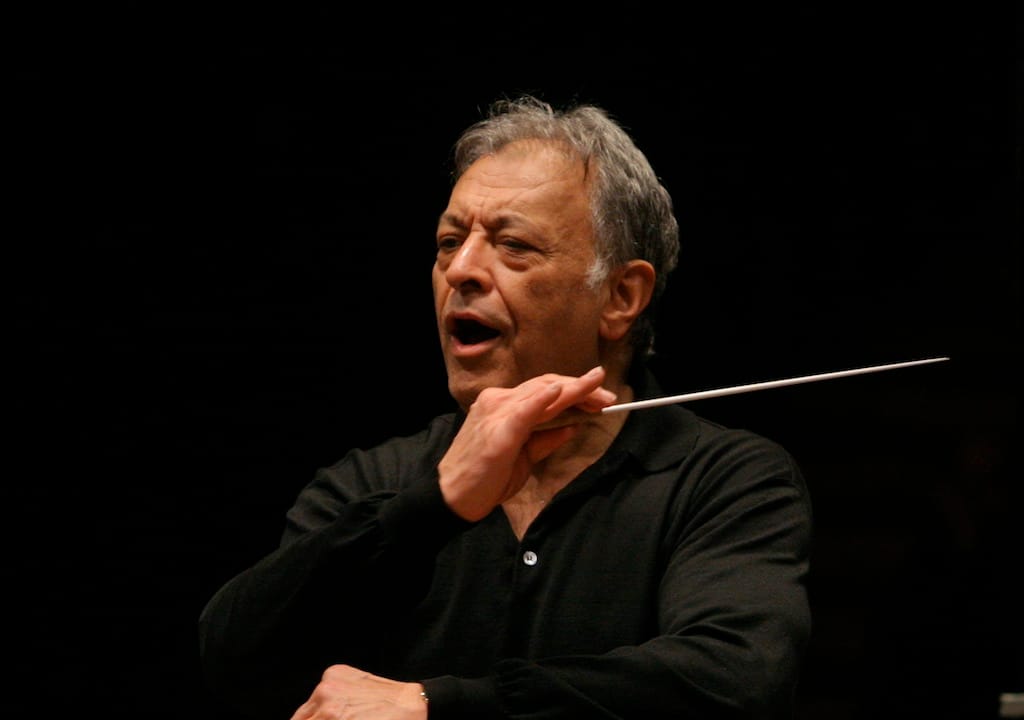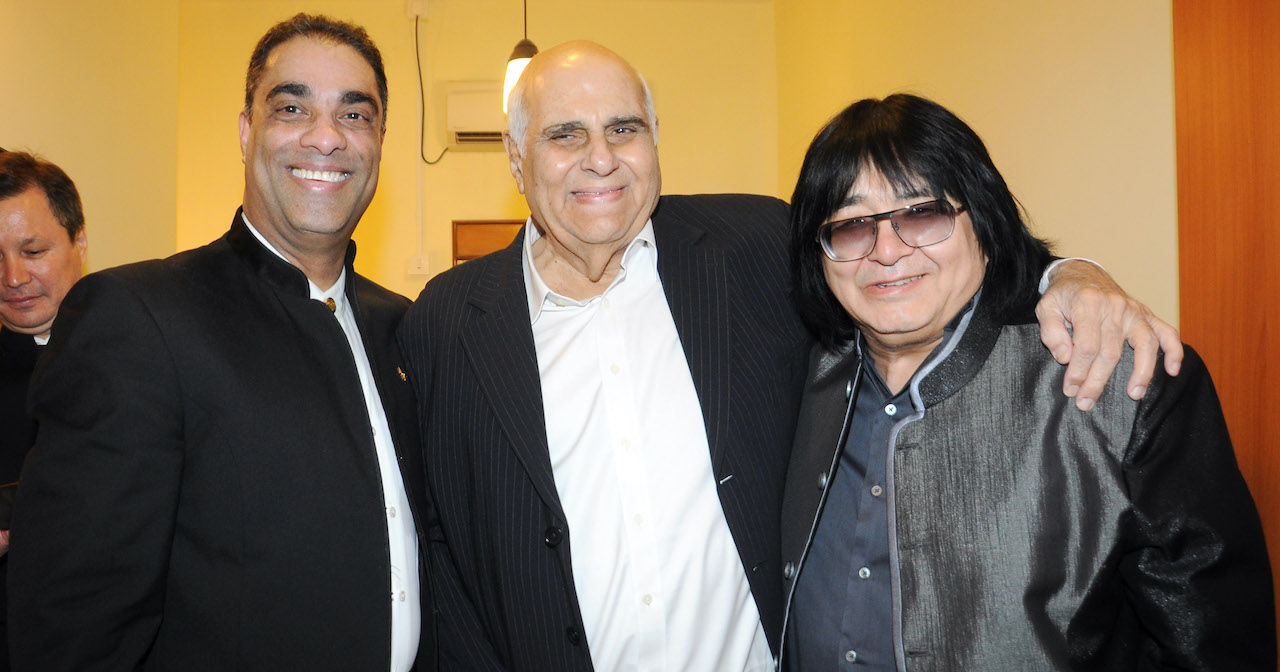Symphony Orchestra of India: A Journey of Musical Excellence and Cultural Enrichment

Two concerts under the baton of Maestro Zubin Mehta to open the season in August. The premiere of a triple concerto composed by Zakir Hussain in September. A fiendishly difficult violin concerto played by Marat Bisengaliev. Maestros Richard Farnes, Alpesh Chauhan and Zane Dalal on the podium. The Symphony Orchestra of India’s tour of the U.K. in December. The SOI Autumn 2023 Season is the longest and most ambitious of them all. In this interview with ON Stage, Chairman Mr. Khushroo N. Suntook reflects on the growth of the SOI and what it means for the city of Mumbai.
Building an orchestra is no mean feat—not even in countries with an established tradition of Western classical music, and certainly not in others. In India, which has its own rich heritage of classical and folk music, acquaintance with the symphonies of Mozart and Beethoven was understandably limited and concentrated in a few circles that often overlapped: record collectors, amateur pianists and violinists, a few composers such as Salil Chowdhury and Vanraj Bhatia, known for their all-embracing approach to music and finally, aficionados.
Traditions, however, can coexist. Wouldn’t a nation with an ear for music be more accepting of another rich tradition from another part of the world? Western classical music, after all, is music first. It was with this belief that Mr. Khushroo N. Suntook, then Vice Chairman of the NCPA, embarked on the seemingly impossible mission of establishing India’s first professional symphony orchestra. The beginnings were made in London in 2003, when he happened to attend a concert led by violin virtuoso Marat Bisengaliev. Highly impressed by the quality of the ensemble’s playing, he invited them to India to play a concert. Bisengaliev agreed and here they were, performing before an audience in Mumbai that included Dr. Jamshed Bhabha, then Chairman, NCPA. A true connoisseur, he lauded the choice of his friend and colleague Mr. Suntook, expressing faith in his plan of which this was the stepping stone. The invaluable encouragement and assistance received from Mr. Suntook’s colleague on the NCPA Council, Ms. Brinda Khatau, who continues to apply her knowledge of organisations and business in an honorary capacity, has been a great factor in the success of this endeavour.
Having performed in the West and the East, Bisengaliev knew that classical music was burgeoning in Asia with an exceedingly high number of soloists training in the tradition and with concert halls mushrooming to satiate the hunger for this music. His conviction found complete support in Mr. Suntook’s vision and in 2006, the Symphony Orchestra of India was born, with Bisengaliev at its helm as Music Director.
It was an uphill task. There were the naysayers and then came the real challenge of venturing into uncharted waters. This was the Symphony Orchestra of India, but where were the Indian players, barring a few? Mr. Suntook insisted that the induction of Indian players in a reasonable period of time was essential.
However, with no conservatories imparting education in Western classical music in India, at least along the rigorous lines of schools abroad, opportunities to train, let alone perform, were limited. Give me 10 years and I will give you results, Bisengaliev promised Mr. Suntook. This, he proceeded to do by systematically creating a training programme based on a method which is considered to be one of the best.
More musical minds, who believed in nurturing the dream of a world-class orchestra India could call its own, joined in. Noted conductor and musicologist Zane Dalal was invited to be the Resident Conductor of the SOI within months of its formation. Now Associate Music Director, Dalal is deeply involved in many aspects of the orchestra.
Every year, Mr. Suntook, Bisengaliev and Dalal would spend hours on end planning programmes, inviting soloists and balancing expenses and income with impressive results. Here, the knowledge and international music connections of the trio formed a powerful magnet to attract artistes who trusted their judgements.
In 2012, six years after the teething troubles—procurement of funds, quality instruments, even proper concert clothes!— had been overcome to an extent, an academy was established to ensure budding musicians were trained in the Russian conservatoire method, the very method that Bisengaliev and other musicians of the orchestra were educated in to become masters of their instruments. The SOI Music Academy came with a unique focus on shaping students not only as soloists but also orchestral players.
Eleven years later, several students are now pursuing higher education in music in prestigious international schools.
Meanwhile, promising artistes have been scouted across India, to be offered apprenticeship to perform in the orchestra alongside established musicians and learn on the job. Delightful discoveries have been made along the way; those that bear out Bisengaliev’s words at the inception.
Audiences, too, have warmed to the music. Concerted efforts have been made to widen the reach of Western classical music— music appreciation sessions, pre-concert talks, educational and outreach programmes are regularly organised and conducted by musicians of the SOI, Dalal, Dr. Cavas Bilimoria and Jimmy Bilimoria. Today, the theatres are filled with not only older connoisseurs but also curious young listeners who stumbled into the music and were awed by the magic that 80-plus musicians create onstage.
This perseverance and adherence to quality has long silenced the sceptics, but the ultimate endorsement comes from the artistes. Season after season, the NCPA has drawn soloists and conductors of international fame to perform with the SOI. The orchestra has also toured the U.K., Russia, Switzerland, the U.A.E. and Oman over the years to very encouraging reviews. It is now set for a tour of the U.K. in November and December with a stellar lineup and programme. This season is truly the culmination of it all.
We spoke to Mr. Khushroo N. Suntook, honorary Chairman, NCPA, about the journey he undertook 17 years ago, the milestones along the way and the upcoming season.

ON Stage: Could you please tell us about the SOI Autumn 2023 Season which commences next month on a rather special note?
Khushroo N. Suntook: When I conceptualised the founding of the Symphony Orchestra of India in 2003, little did we realise that in a short span of time, at least as far as the longevity of orchestras is concerned, we would be planning a season from August to December which would have 15 major concerts by world-class musicians, two of them led by our very own Zubin Mehta, who will be specially flying to Mumbai to conduct the SOI in August. We are co-presenting these two concerts with the Mehli Mehta Music Foundation which is doing wonderful work in the area of creating greater awareness and appreciation of Western classical music.
The next month will see the world premiere of a triple concerto— commissioned by the NCPA—by tabla maestro Zakir Hussain, who has not only composed it but will also perform it with the noted sitar and bansuri players Niladri Kumar and Rakesh Chaurasia. Our Zane Dalal, whom Mumbai loves, will embark on leading ambitious works by Rossini, Khachaturian and Tchaikovsky with Music Director Marat Bisengaliev, who will be playing the solo in the fiendishly difficult concerto by Khachaturian. This season will also feature other world-class soloists, Steven Isserlis and Pavel Kolesnikov, and conductors Richard Farnes and Alpesh Chauhan who have helmed the SOI in earlier seasons and are happy to return to the NCPA.
OS: What is the curatorial process of a season of this magnitude?
KNS: The curation of seasons of this kind is an enormous effort and we cannot leave out all the people connected with the season as well as our valued partners Edward Smith, Gian Ganzarolli, Richard Nowell and IMG Artists. The vital support received from the NCPA’s Western Classical Music committee, consisting of distinguished members of the community with knowledge of the genre and who regularly tour internationally, cannot be denied. A team to sustain quality music making season after season was essential and due credit must be given to persons, like Mr. Jehangir and Mrs. Binaifer Batiwala, who secure artistes internationally and manage classical music concerts in Pune, the SOI’s fine manager Xerxes Unvala and of course, the indefatigable orchestra manager Onay Zhumabayeva.
OS: How do you look back on the last 17 years?
KNS: It is no easy matter to have built an orchestra to this standard so that we may present it to worldfamous musicians. The process itself was extremely hard, filled with difficulties of all kinds. I was fortunate in having tied up with Marat Bisengaliev, who has proven to be an invaluable asset to the NCPA in having not only established a fine team but also happily introduced fine musicians as teachers and players in the SOI Chamber Orchestra.
OS: What does this mean for Mumbai, the home of the country’s first professional orchestra?
KNS: Providentially for the city, this team of fine musicians has proved to be a gift, for the first time creating an international-class orchestra worth of not only performing at a high level but also absorbing talented young Indians from all over the country and establishing its own academy which now forms an orchestra of its own.
Several diplomats and international businessmen have written to appreciate the performances of Western classical music at the NCPA as an invaluable adjunct to living in Mumbai. Only people involved in reaching this kind of standard will understand the difficulties it entails and which our city and our country must be proud of.
This piece was originally published by the National Centre for the Performing Arts, Mumbai, in the July 2023 issue of ON Stage – their monthly arts magazine.






